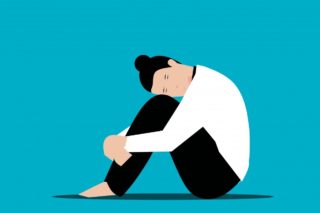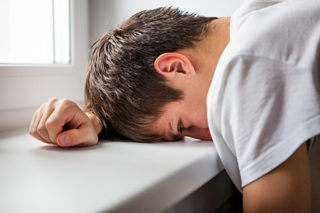What Happens When You Stop Taking Rivaroxaban?
There are a lot of risks associated with stopping taking Xarelto, which is an anticoagulant medication. One of the major risks is that blood clots may begin to form, which could lead to a stroke and a lack of oxygen to the brain. This could also potentially lead to partial paralysis or even death. Stopping a blood-thinning drug suddenly can also raise the risk for a blood clot in the brain, which is often fatal.
The user of a prescription drug like Xarelto needs to be carefully weaned off of the drug under the supervision of a trained medical professional. This can be accomplished through a medical detoxification program as well.
Rivaroxaban Withdrawal and a Detoxification Timeline
A rivaroxaban detoxification may look like and unfold like this:
Side effects 12-14 hours after stopping Rivaroxaban:
- Headache
- Fatigue
- Nausea
- Dizziness
- Lightheadedness
- Dry mouth
- Easy Bruising
- Back pain
- Heart palpitations
- High blood pressure
- Leg weakness
- Risk of a blood clot or stroke
Side effects 1-3 days after stopping Xarelto:
- The person going through the detox might experience more emotional disturbances, such as:
- Depression and / or anxiety
- Restlessness
- Possible suicidal ideation
- Sleep difficulties or insomnia
- Trouble concentrating
- Problems thinking clearly
Side effects 3-5 days after stopping the prescription drug:
The effects of withdrawal will start to wane and dissipate.
Side effects 1 week after stopping Rivaroxaban:
Most of the withdrawal symptoms will subside. However, emotional issues may still be present.
Most of the time, a rivaroxaban detox will last between three to five days. There are several factors that might influence the duration and the severity of rivaroxaban withdrawal. Biological factors, such as the patient’s metabolism and family history of drug use, can influence the detoxification process.
Medical detoxification programs are typically a calm and supportive environment to help ease the patient through the process. Our environment can affect us greatly and a soothing space can positively affect the detoxification process and its potential success. A relaxing environment can also reduce the number of negative emotions or anxiety a patient may experience during detoxification.
At Windward Way Recovery, our dedicated and knowledgeable staff are here to walk you through any detoxification or withdrawal process. If you or your loved one have misused prescription drugs and needs help with starting recovery processes, we are here to provide a holistic and personalized treatment plan.
Our staff is available 24/7 to answer your calls. Fill out this form or call us at (855) 491-7694 to schedule a free initial consultation. At Windward Way Recovery, we proudly serve the Midwest community in Franklin, California and patients from across the United States.
When Do Rivaroxaban Symptoms Start Occurring?
Rivaroxaban withdrawal symptoms might start when the drug stops being active in the bloodstream. The half-life of the drug is between five and nine hours for healthy individuals between the age range of 20 to 45, according to the prescribing information from rivaroxaban. This means withdrawal symptoms will typically start within 10 to 18 hours after the last dose.
However, the average age of individuals prescribed Xarelto is typically those over sixty years old, according to the Journal of the American Heart Association. Since our metabolisms slow as we age, we can expect that withdrawal symptoms will start at a different rate. The Xarelto half-life is extended to 11 to 13 hours for people between the ages of 60 and 76. Regardless, Xarelto withdrawal symptoms should begin within 24 hours of stopping the drug.
What Happens If Rivaroxaban Is Mixed with Alcohol?
As aforementioned, anyone going through a rivaroxaban withdrawal should consult with a trained medical professional. The risk of blood clots is high, which could result in a stroke or even death. Medical detox will keep you safe through the process.
However, some people will attempt detoxification on their own which can be dangerous to the individual. Co-occurring mental health or other medical conditions have the possibility of complicating rivaroxaban withdrawal and the timeline. If an individual consumes alcohol or other substances during the withdrawal process, it can complicate matters. Consuming alcohol during withdrawal adds more concerns and potential risk factors. Abuse of rivaroxaban is likely to increase the chance of a negative reaction during detoxification and it can extend the time until the substance is out of your system.
Someone who has been misusing rivaroxaban for an extended period is most likely going to have significant withdrawal symptoms. These symptoms will last longer than a person who hasn’t been taking as much of the drug for as long.
Since the most dangerous consequence of detoxification could be death, it is best to always consult a trained medical professional. If you or a loved one is seeking a medical detoxification, contact us to find out what programs we offer. At Windward Way Recovery, our dedicated professionals are available 24/7 to answer your calls to assist you. Contact us by filling out this form or calling (855) 491-7694. We proudly serve the Midwest community in Franklin, California and we assist patients from across the United States.
Medical Detoxification for Rivaroxaban Withdrawal
We cannot stress enough that if you are experiencing rivaroxaban withdrawal, it is crucial to go through a medical detoxification with trained professionals. Your health and livelihood are incredibly important and you risk negative consequences when you attempt to go through a withdrawal on your own.
Medical detoxification programs offer the highest level of care during a rivaroxaban withdrawal. At a specialized medical detoxification facility, medical personnel will be available for you around the clock and will monitor your vitals and any potential cardiovascular issues or possible blood clotting. If you attempted to detoxify at home, it would be impossible to know whether blood clots are forming.
For anyone who has a co-occurring medical or mental health disorder, it is even more important to go through medical detoxification. A medical professional can address and monitor any additional symptoms that are happening because of a co-occurring disorder. If you have anxiety or depression, the detoxification process might make your symptoms worse. Some patients even experience suicide ideation, which is another reason to go through detoxification with a medical professional.
A trained professional will also have the necessary medications at their disposal. Withdrawal symptoms can be more manageable with medications to reduce the severity of the pain or discomfort you might experience. Necessary medications can keep a patient comfortable and make detoxifying easier.
There are also different approaches to medical detoxification. A prescription drug like rivaroxaban can be tapered off slowly to reduce the risks that can occur when someone stops abruptly. Tapering off the drug slowly includes lowering the dosage of the drug in a controlled manner over time to minimize the effect of withdrawal. Rivaroxaban can also be switched with a different medication that prevents blood clots; this switch can aid the detoxification and prevent a blood clot from forming.
If you or a loved one is suffering from the misuse of prescription drugs, our staff can help create a personalized plan that takes into account any co-occurring disorders and other needs you might have. At Windward Way Recovery, we are deeply committed to providing comprehensive, customized addiction recovery treatment plans for each and every one of our patients. Contact us by filling out this form or by calling (855) 491-7694.
Our staff is available 24/7 to answer your call. Contact us today to schedule your free initial consultation.
What Other Effects Can Occur from Using Rivaroxaban?
Misusing prescription drugs can have dire consequences. Not only can it negatively affect your personal relationships, but it can also wreak havoc on your body and health.
Rivaroxaban abuse has the potential to cause nerve damage, paralysis, and irreversible internal bleeding. There is no medication on the market yet that can heal the issues that arise after the continuous misuse of prescription drugs. That means some of the damage caused by abusing rivaroxaban may not be reversible. These potential reactions would decrease your long-term quality of life, so it is important to get help if you are struggling with a substance use disorder.
The misuse of this prescription drug also has many physical, social and psychological effects that can negatively impact a person’s life. Rivaroxaban abuse can lead to an addiction. You might be compulsively taking the drug and then have the inability to stop taking it even if you would like to.
Addiction is a treatable disease. We offer behavioral therapies, medication management, and supportive care and treatment. However, if you are suffering from an addiction to rivaroxaban, you must start with a medical detoxification program before you can receive comprehensive treatment. A continuum of care can aid in reversing some of the emotional and psychological effects of the disease.
A medical detoxification program can ease rivaroxaban withdrawal symptoms. It also has the potential to shorten the amount of time you might go through withdrawal. Do not try to detox at home without the help of a trained professional. It is a risky decision and has the potential to be life-threatening. Even when you are taking the drug as prescribed to you, rivaroxaban is not a drug that anyone should try to stop taking on their own without a licensed medical professional.
Abuse of the drug or any other drug has the potential to create numerous complications during detoxification and withdrawal. Medical detoxification is an important level of care that enables the individual to start on their path to recovery and begin an addiction treatment program. A medical detoxification program typically offers constant support, encouragement, and supervision for an average of three to five days in a safe environment. A medical detoxification does offer a comforting space where an individual will be able to heal and regain physical and mental strength as the drug leaves the system.
After a medical detoxification program, you would have the opportunity to move into a comprehensive and specialized addiction treatment program. Our treatment programs are specialized to your needs and help you get on the path to recovery.
Get the Care You Deserve and Take the First Step to Recovery
If you or a loved one is struggling with prescription drug use, you are not alone. At Windward Way Recovery, our dedicated staff is here to help you take the steps to begin your recovery and live a healthy and sober life. Once medical detoxification is complete, we can smoothly transition you into our recovery programming that will begin to focus on the issues underlying the addiction.
While getting help is vital to overcoming a substance use disorder, there are several factors that will affect the likelihood of success during treatment. These include your willingness to accept treatment, motivation for seeking treatment, and prior treatment and relapse history.
If you or your loved one is ready to receive treatment, our committed substance abuse treatment specialists and clinical counselors can help you determine the best type of treatment for your needs.
At Windward Way Recovery, we are deeply committed to providing comprehensive, customized addiction recovery treatment plans for each and every one of our patients. If you’re ready to make that first step, contact us by filling out this form or call us at (855) 491-7694. We are located in the Franklin, California community in the Midwest, but we also proudly serve patients from across the United States.






